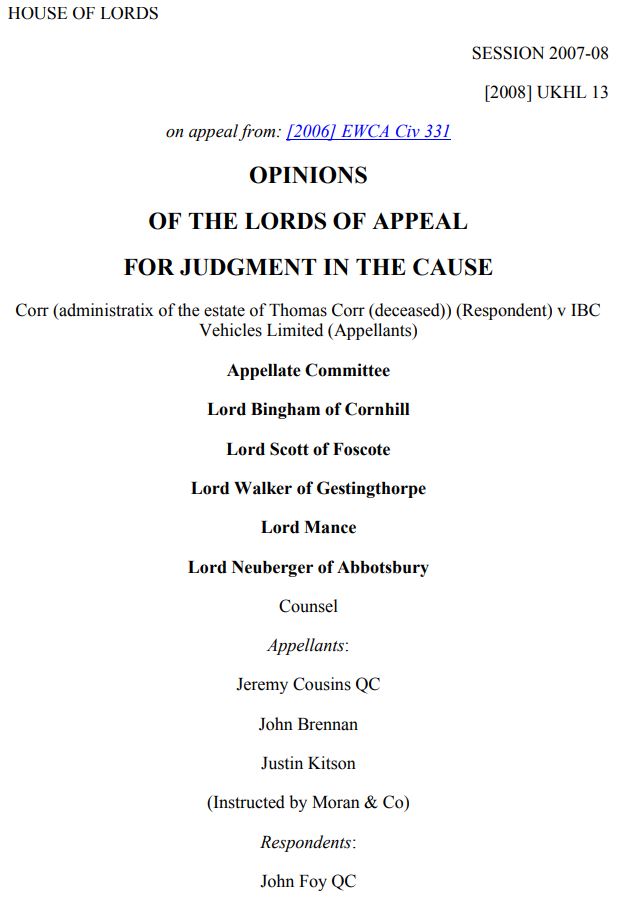Corr v IBC Vehicles Ltd: Case Summary
Following the death or her husband, a widow brought a claim against the Defendant under the Fatal Accidents Act 1976 for the death or her husband. The Defendant employed the husband and as a result of negligence he sustained an injury to his lip which contained pre-cancerous cells. The cells were triggered by the injury and three years later the man died from cancer. The judge held that the burn was foreseeable and that the defendant was liable for his death.
Corr v IBC Vehicles Ltd: Download Judgement
Corr v IBC Vehicles: Case Analysis
Book an Initial Consultation with our Professional Negligence Lawyers
Do you have a claim against a professional? If you want expert legal advice, do not delay in instructing us so we can assess the legal merit of your case.
We can often take on such claims on a no win no fee basis (such as a Conditional Fee Arrangement) once we have discussed the claim with you and then assessed and advised you on the merits of the proposed professional negligence action.
Our expert legal team of leading Professional Negligence Solicitors & Barristers can provide urgent help, advice or representation to you. Just call our Professional Negligence Lawyers on 02071830529 or email us now.
Instruct Specialist Professional Negligence Solicitors
We are a specialist City of London law firm made up of Solicitors & Barristers operating from the only law firm based in the Middle Temple Inn of Court adjacent to the Royal Courts of Justice. Our team have expertise in advising on claims for compensation against professionals that have fallen below the standard expected, which causes clients financial or personal loss. We are experienced in bringing successful claims against negligent solicitors, barristers, financial advisers, insurance brokers, surveyors, valuers, architects, tax advisers and IFAs.

